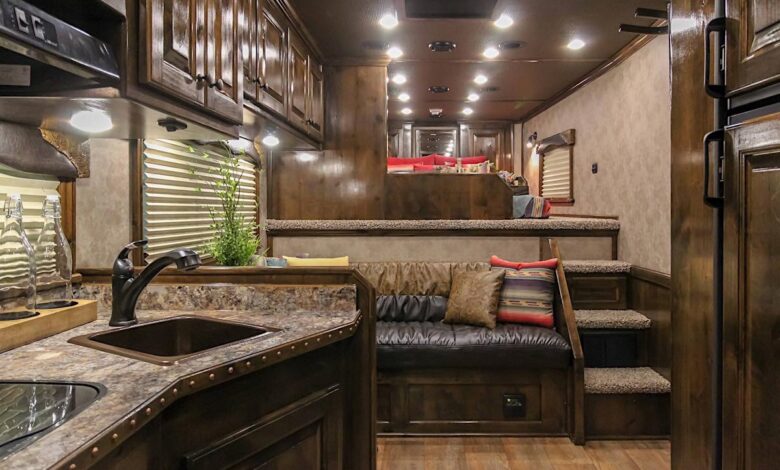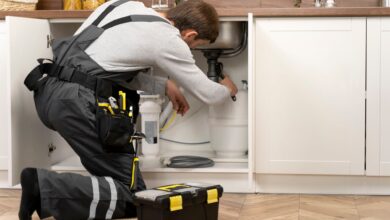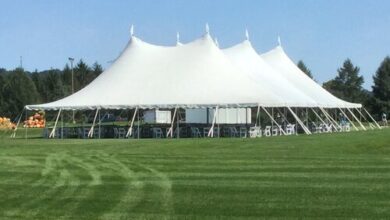Equine Transport: Features That Define Top-quality Horse Trailers with Living Quarters

Embarking on acquiring a horse trailer is a significant decision for any horse owner, especially considering units with living quarters. These versatile vehicles safely transport your prized horses and offer comfortable living spaces for equestrians. The goal is to balance practicality, comfort, and safety while adhering to legal stipulations and managing costs effectively. In selecting the ideal horse trailer with living quarters, understanding the intricate features that define top-quality models is essential. Whether you’re a competitor in equestrian sports, a traveling clinician, or someone who enjoys hitting the trails, this comprehensive guide will help you navigate the must-have features, the nice-to-haves, and the innovations that make travel with your horses a smooth and stress-free experience.
Design Considerations for Optimal Horse Safety
Ensuring the well-being of your horses during transportation is paramount. Trailers must emulate a mobile stable – durable, safe, and tailored for equine comfort. Every aspect, from anti-slip flooring to padded walls, should be meticulously crafted to minimize the risk of injury. Ample headroom and spacious stalls are imperative to prevent feelings of confinement and potential harm during travel. Opting for high-quality materials like reinforced aluminum or steel, coupled with a rust-resistant frame, underscores the trailer’s durability and resilience. Adequate lighting is equally crucial, as it soothes anxious travelers and facilitates easier monitoring and care during stops. Considering features like these is critical when selecting a horse trailer with living quarters. On top of this, proper ventilation cannot be overemphasized; it keeps air circulating and maintains a comfortable environment for horses, minimizing respiratory distress and overheating even during the warmest seasons. Modern trailers also come with adjustable windows and roof vents, which are instrumental in controlling the trailer’s climate, regardless of outside weather conditions.
Living Quarters Amenities for Long-Distance Travel
Incorporating functional living quarters in a horse trailer is invaluable for those who spend considerable time on the road. It’s not merely about the availability of a bed or a dining nook; it’s the thoughtful integration of all home-like comforts that truly refines the travel experience. Quality living quarters should provide a fully equipped kitchenette, possibly with a microwave, refrigerator, and stove, to enable healthy meal preparations. Comfortable sleeping arrangements, efficient heating and cooling systems, and sufficient storage for clothing and personal items are paramount. In addition, convenient bathroom facilities with hot water and laundry machines contribute significantly to maintaining a sense of normality and routine amid travel. Moreover, having an area that offers escape and relaxation, such as a cozy lounge space, can be particularly rejuvenating after a long day of driving or competition. Think of it as a space that reflects not just the necessities but the personal style and comfort of its inhabitants.
Towing Requirements and Vehicle Compatibility
The journey to safely transporting your horses commences with choosing a suitable towing vehicle. It is imperative to scrutinize the Gross Vehicle Weight Rating (GVWR) to ensure compatibility with the weight of your loaded trailer. Advanced features such as brake controllers, extendable towing mirrors, and appropriate hitch systems can significantly affect maneuverability and control. Regular checks on the towing vehicle’s engine, brake systems, tire pressure, and fluid levels must be a part of the routine pre-trip inspection checklist. Furthermore, investing in rugged, reliable tires for your trailer ensures less risk of uneven serenity and reduced chances of breakdowns. It is also helpful to familiarize yourself with the trailer’s backup systems and practice handling maneuvers to build confidence on the road.
Legal and Regulatory Aspects to Consider
Transporting horses is not without its legalities. It’s crucial to stay informed on the varying interstate and cross-border livestock movement regulations. Requirements for health certificates, brand inspections, and a negative Coggins test are ordinary and necessary for disease control. To prevent fines and guarantee compliance with local Department of Transportation (DOT) officials, it is equally important to understand the dimensions and weight restrictions of horse trailers permitted on the road. Additionally, stay updated with periodic changes in regulations to prevent unwitting transgressions and the resultant fines, or worse, delayed travel plans.
Innovative Technologies in Modern Horse Trailers
Today’s horse trailers merge traditional design with cutting-edge technology to ensure equine well-being and ease of use for owners. Safety is bolstered by electronic braking systems and shock-absorbing features that provide a smoother ride. Modern trailers offer advanced monitoring systems, allowing owners to watch their horses via smartphone apps. Remote temperature control ensures the horses remain cool in summer and warm in winter. At the same time, innovative lighting systems that simulate daytime can help maintain the horse’s natural circadian rhythm. Furthermore, as highlighted by industry experts on The Horse, new advancements in safety are being constantly developed, such as emergency exit systems and fire retardant materials, reflecting a continuous evolution in horse travel comfort and security.
Storage Solutions and Gear Accessibility
The needs of an equestrian encompass more than just boarding their horse; it involves a cavalcade of equipment, not to mention personal and horse care items. Thus, strategically designed storage spaces within the trailer must be considered. Saddles, bridles, grooming kits, feed, and veterinary supplies need convenient yet secure compartments for easy access and organization. Features like saddle racks, built-in cabinets, and hooks for hanging equipment optimize space and reduce mess. Additionally, proper feed storage is crucial for maintaining horse health during travel; hence, incorporating solutions such as built-in grain bins and water tanks is vital to designing a highly functional trailer.
Maintenance Tips to Extend the Life of Your Trailer
Responsible ownership involves diligent maintenance of your horse trailer. Routine servicing needs to address areas prone to wear and tear, such as the flooring, which should be sturdy and rot-resistant, and windows that must be sealed to prevent leaks. Frequent checks on electrical wiring, lights, and brakes are part of proactive maintenance that ensures the safety of the horses and drivers on the road. Also, attention to the exterior’s condition, like paint and rust treatment, will keep the trailer looking new and prevent structural damage. Adhering to a disciplined servicing schedule and promptly addressing issues protects your investment and ensures your equine passengers’ welfare.
Cost-Benefit Analysis: Buying New vs. Used Horse Trailers
Whether it’s better to buy new or used depends on various factors, from initial costs to intended use and personal preferences. New trailers boast the latest safety features and technological integrations and come with warranties that provide peace of mind to the buyer. Conversely, used trailers can offer significant cost savings. While they may not feature the most up-to-date amenities or safety features, thoroughly inspecting and refurbishing can make a used trailer worthwhile. One should carefully weigh the long-term value, considering the depreciation rates of new trailers against the anticipated usage and the potential costs of any necessary upgrades to a used trailer.
Conclusion: Making an Informed Decision
At the journey’s end, selecting the ideal trailer is about more than just purchasing a vehicle; it’s about investing in the well-being and safety of your horses and ensuring that your travels are a source of pleasure, not stress. In-depth research, comparison, and a thorough understanding of wants, needs, and budget limitations will steer you toward the right choice. Armed with the required features, expected costs, and maintenance needs, equestrians are well-equipped to make an informed decision. Considering the nuances outlined in this guide can ensure that your travels with your horses are comfortable, secure, and compliant with all necessary regulations.
Exploring the intricacies of equine transport extends beyond the bounds of this guide. For those seeking to understand the full scope of travel concerns, including horse well-being during long distances, it provides a comprehensive collection of advice for horse owners embarking on journeys. Remember, the welfare of your horse and your peace of mind on the road are interconnected, and with the right trailer, you can ensure a gratifying experience for both.



